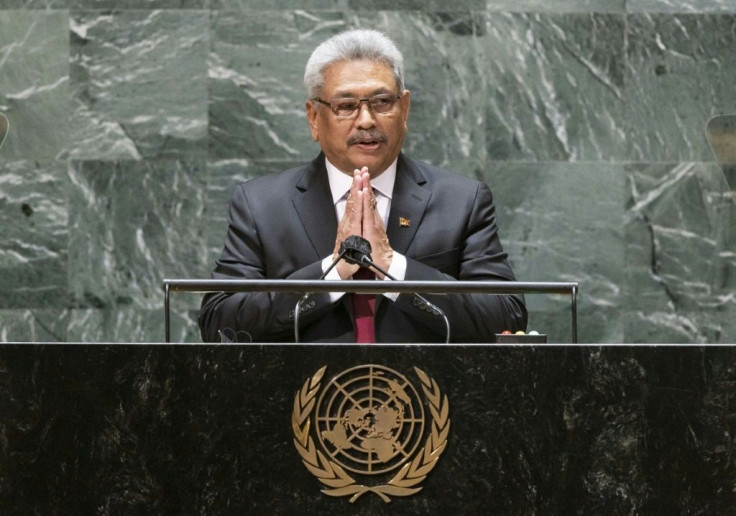Sri Lanka’s Bid To Become First Organic Farming Nation Withers Away In China-India Rivalry

Sri Lanka's honeymoon with green efforts to become the world's first completely organic farming nation is over as the Island nation did not do enough spadework and did not possess the wherewithal to withstand the rivalry between China and India.
Health and economic reasons were cited by Sri Lanka in its quest to go green in April this year. However, geopolitical and domestic compulsions forced the country to put its green efforts on the backburner.
Sri Lanka's agriculture ministry took the decision Nov. 24 to lift the ban on all agrochemicals, including herbicides and pesticides, due to the stiff opposition by farmers and ahead of planned protests in capital Colombo by farmers.
"We will now allow chemical inputs that are urgently needed," agriculture ministry secretary Udith Jayasinghe told the private News First TV network.
The government had removed the curbs on fertilizer imports last month for tea, the country's main foreign exchange earner.
Under its government's Vistas of Prosperity and Splendor Agenda, aiming at improving peoples' health, Sri Lanka wanted to phase out the use of fertilizers and agrochemicals to promote organic agriculture, organic fertilizers, organic food consumption, and the export of organic food and agricultural products.
Vast tracts of farmland were rendered useless after the ban on the import, started on April 26. Shortages worsened this month, with prices for staple food rice and other vegetables going through the roof and doubling across the country.
After tourism earnings and foreign remittances by Sri Lankan workers dwarfed drastically, President Rajapaksa wanted to make Lankan farming 100 percent organic and policy-level changes, including the ban on agrochemicals, were introduced to lift the country's cash-strapped economy.
In 2020, Sri Lanka imported fertilizers from foreign countries worth $259 million, accounting for 1.6 percent of the country's total imports by value. The government also doles out massive subsidies to farmers to finance its costly fertilizer program.
Sri Lanka has been facing a severe foreign exchange crisis, triggering shortages of food, crude oil and essential goods.
It was the feud over the order to import 99,000 metric tons of organic fertilizer, costing $63 million, with a Chinese firm, Qingdao Seawin Biotech Group, that triggered a storm country last month. The consignment was rejected after an analysis by Sri Lankan agencies found it to be contaminated with the presence of pesticide, Erwinia, that causes post-harvest losses in crops.
As the country faced a severe shortage of fertilizers after ban on the Chinese import, India stepped in and supplied 3.1 million liters of nano liquid fertilizer, which were found to be free of contamination and suitable for the use in Sri Lanka. The first consignment was received Oct 20 to help cultivation of maize and paddy in the country's Eastern province.
The second Indian consignment of 100 tons of nano nitrogen fertilizer to Sri Lanka was airlifted by the Indian Air Force Nov. 4, according to a statement by the Indian embassy in Colombo.
Close on the heels of India's supply, Lanka is planning to seek a $500 million credit line from India to pay for its crude oil purchases in the midst of the severe foreign exchange crunch.
China hit back by blacklisting the popular Sri Lankan state bank, People's Bank of Sri Lanka, and demanded $8 million from Sri Lanka as compensation.
India and China are vying to court strategic Island nation since a decade. They definitely have a role in spoiling Sri Lanka's wish to become the first organic farming nation in the world.
Besides, Sri Lanka embarked on a green journey without doing enough homework. It wanted to produce 1 million tons of organic fertilizers per annum. Nonetheless, its own organic fertilizer production capabilities were at a nascent stage, forcing it to resort to imports from China, after the much outcry by domestic farmers over shortage of fertilizers.
The government also did not impart training and assistance to farmers to switch over to the new green methods amid soaring food prices.
Anyway, the organic honeymoon is over for Lanka and its 21.8 million people in South Asia.





